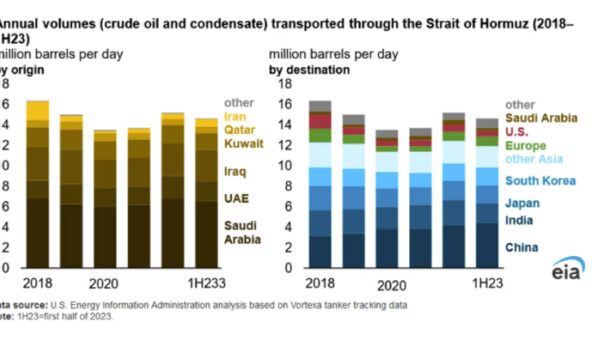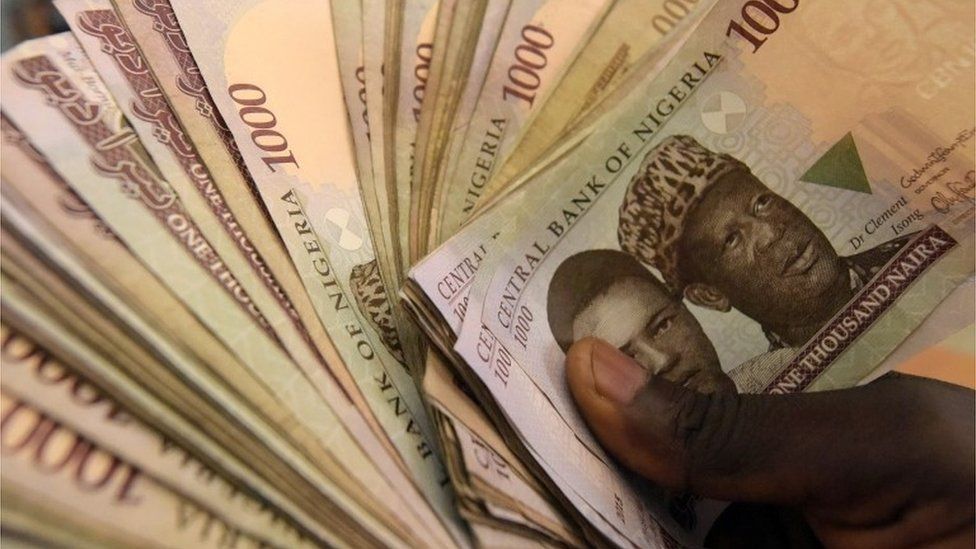Monday, 6th December 2021: The exchange rate between the naira and the US dollar closed at N415/$1 at the official Investors and Exporters (I&E) window.
Naira depreciated against the US dollar on Monday to close at N415/$1, representing a 0.07% drop compared to N414.73/$1 recorded in the previous trading sessions as drop in the country’s external reserve continues with a decline of $33 million.
However, the naira remained unchanged against the US dollar on Monday as it closed at N570/$1. This was the same rate that was recorded in the previous trading session. This is according to information obtained from BDC operators interviewed by Nairametrics.
The local currency fell at the official market despite a significant increase of 119.3% in Forex turnover.
Trading at the official NAFEX window
The exchange rate at the Investors and Exporters window depreciated by 27 kobo to close at N415/$1 on Monday, compared to N415.73/$1 recorded at the last trading session.
The opening indicative rate closed at N413.85/$1 on Friday, which represents a 21 kobo gain compared to N414.06/$1 recorded in the previous trading session.
An exchange rate of N459.85/$1 was the highest rate recorded during intra-day trading before it settled at N415/$1, while it sold for as low as N404/$1 during intra-day trading.
Forex turnover at the official window rose sharply by 119.3% to $225.94 million on Monday.
According to data tracked by Nairametrics from FMDQ, forex turnover at the I&E window increased from $103.01 million recorded on Friday 3rd December 2021 to $225.94 million on Monday 6th December 2021.
Cryptocurrency watch
The volatility of the cryptocurrency market continued after a massive sell-off throughout the weekend and even on Sunday, with prices recovering early hours of Tuesday after dropping on Monday.
The world’s largest cryptocurrency, Bitcoin, rose by 4.04% to trade at $50,953.40 in the early hours of Monday after an initial drop on Monday.
Cryptocurrencies were mostly lower on Monday, although market conditions have stabilized following the weekend sell-off. Bitcoin was trading above its 200-day moving average (currently at $46,386), which suggests selling pressure could wane over the short term.
Bitcoin on Monday went back under the $1 trillion market capitalization level with the combined crypto market falling toward the $2 trillion mark.
Meanwhile, Ethereum, the world’s second largest cryptocurrency by market capitalization went up by 4.26% to trade at $4,343.93.
Crude oil price
Crude oil price sustained its gains above $70 in the early hours of Tuesday as Brent crude went up by 0.77% to trade at $73.64 per barrel on signs that Omicron concerns is overdone.
Oil prices edged up after a near 5% rebound the day before as concerns about the impact of the Omicron variant on global fuel demand eased while Iran nuclear talks hit roadblocks, delaying the return of Iranian crude supplies.
Oil prices were plunged last week over concerns that vaccines might be less effective against the new coronavirus variant Omicron, sparking fears that governments may re-impose restrictions to curb its spread and hit global growth and oil demand.
In another sign of confidence in oil demand, the world’s top exporter Saudi Arabia raised monthly crude prices on Sunday.
This comes after OPEC+, agreed to continue raising output by 400,000 barrels per day in January despite the release of U.S. strategic petroleum reserves
The West Texas Intermediate gained 1.02% to trade at $70.20 per barrel. Also, Natural gas was by 1.70% to trade at $3,719 while OPEC Basket went up by 2.26% to trade at $71.61 per barrel.
On the other hand, Nigerian crude, Bonny Light was up by 0.82% to trade at $71.26 per barrel.
External reserve
Nigeria’s external reserve dropped by 0.08% on Friday, 3rd December 2021, to close at $41.085 billion. This represents a decrease of $33 million compared to $41.118 billion recorded as of the previous day.
The consistent decline that had been experienced in the country’s reserve level could be attributed to the continuous intervention of the apex bank in ensuring the stability of the exchange rate.
It is worth noting that the nation’s foreign reserve had gained $5.99 billion in the month of October, as a result of the $4 billion raised by the federal government from the issuance of Eurobond in the international debt market.
In the month of November, Nigeria’s external reserve lost $633.47 million in value as against a gain of $5.99 million recorded in the previous month and $2.76 million gain in September 2021. On a year-to-date basis, the reserve gain has reduced to $5.74 billion.
Article Originally Published Here




















































You must be logged in to post a comment Login